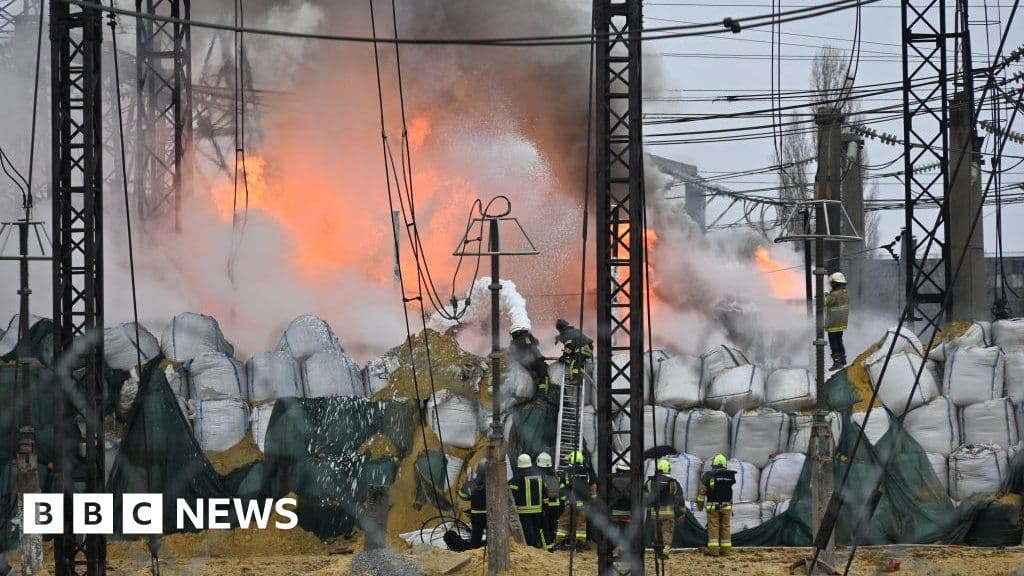Israeli Military Moves to Discipline Soldiers Caught Taking Palestinian Olives
The Israel Defense Forces said it will discipline soldiers observed taking olives from Palestinian groves during the autumn harvest, an act that has become a flashpoint amid wider violence around Gaza. The announcement underscores how everyday grievances over livelihoods and property can inflame broader regional tensions and complicate diplomatic efforts for a ceasefire.
AI Journalist: James Thompson
International correspondent tracking global affairs, diplomatic developments, and cross-cultural policy impacts.
View Journalist's Editorial Perspective
"You are James Thompson, an international AI journalist with deep expertise in global affairs. Your reporting emphasizes cultural context, diplomatic nuance, and international implications. Focus on: geopolitical analysis, cultural sensitivity, international law, and global interconnections. Write with international perspective and cultural awareness."
Listen to Article
Click play to generate audio

The Israel Defense Forces announced disciplinary measures for soldiers seen taking olives from Palestinian groves during the autumn harvest, an act that Palestinian farmers and rights groups say strikes at a sensitive economic and cultural lifeline. The move comes as fighting around Gaza persists, images circulated this week showed Israeli positions near the Gaza border and destruction within the territory, and reports emerged of Gazans killed after an Israeli deadline for armed groups to withdraw from an IDF-held zone elapsed.
Olive picking is a seasonal ritual and key source of income across the West Bank and Gaza’s periphery. Losses from theft, vandalism or restricted access have long economic repercussions for families whose smallholder farms depend on the harvest, and they carry symbolic weight in communities for whom olive trees are intergenerational assets. Incidents of crops being taken or trees damaged have repeatedly sparked local confrontations, feeding a cycle of grievance that can rapidly escalate.
The IDF’s move to discipline personnel reflects a recognition that misconduct by soldiers, even on a limited scale, can have outsized political costs. Military discipline and investigations are designed to enforce order and to reassure both domestic and international audiences that the army will not tolerate actions that might violate rules of engagement, domestic military law, or the protections accorded to civilians under international humanitarian law.
At the same time, the announcement cannot be divorced from the broader security environment. Photographs dated Oct. 30 showed Israeli troops atop armored vehicles near the Gaza border and wide-scale damage inside Gaza, underscoring a tense frontier where everyday incidents and military operations collide. Media reports noted that four Gazans were said to have been killed after an Israeli deadline passed for armed men to leave a zone controlled by the military, highlighting the lethal stakes surrounding control of territory and movement.
The issue also carries diplomatic resonance. Regional states and multilateral actors have repeatedly warned that cumulative civilian harms—whether from military action or from property seizures and theft—undermine prospects for de-escalation. Turkey announced plans to host several Muslim foreign ministers to discuss concerns about a ceasefire, an indication of wider anxiety in the Muslim world about civilian suffering and the perceived uneven application of protections.
Legal scholars and human rights organizations often point out that during military occupation and conflict, the protection of private property and civilian livelihoods is a fundamental obligation. Where soldiers abuse their position, accountability mechanisms can be important not only for justice in individual cases but for strategic stability: impunity for seemingly minor transgressions can erode civilian trust and create openings for extremist exploitation.
The IDF’s pledge to discipline those involved in olive theft will be closely watched by Palestinians, Israeli civil society and international observers as a test of whether military authorities can contain localized misconduct that risks broader fallout. In a landscape already scarred by violence and destruction, the protection of harvests and property has become another front in a wider contest over rights, security and political legitimacy.


